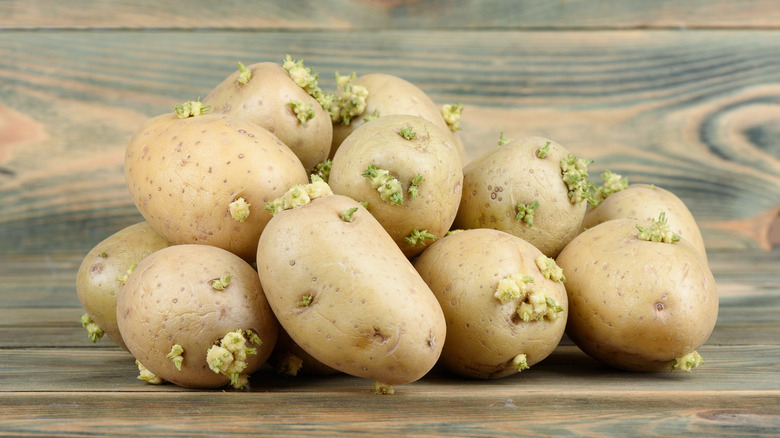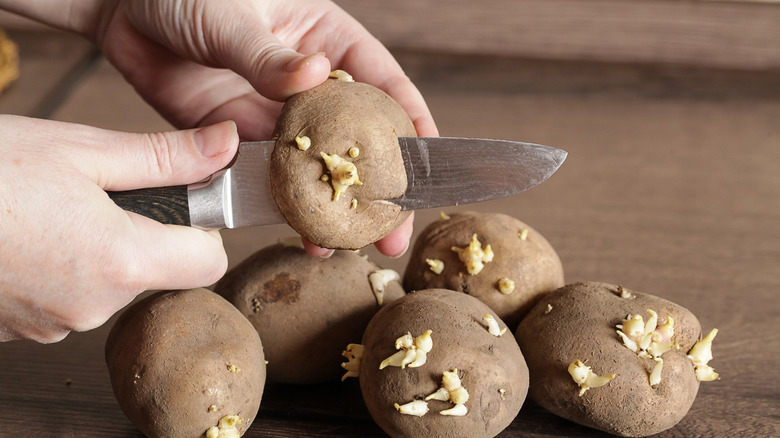Are Sprouted Potatoes Safe To Eat? Here's What You Need To Know
After leaving a sack of potatoes lying around in your kitchen for a while, it's very likely that at least a few of them will start sprouting. These root-like sprouts — also called "eyes" — happen when the potatoes are stored improperly. Specifically, if the potatoes are being kept in a warm or moist place that mimics the outdoor environment where they grow. It's easy enough for potatoes to accidentally sprout, so what do you do with them? Specifically, are sprouted potatoes safe to eat?
The short answer is that some sprouted potatoes are safe to eat. It depends on the state of the potato and how much it has sprouted, as well as a couple of other factors. But one of the false facts about sprouted potatoes is that they're all toxic — some are perfectly safe to eat.
Basically, sprouts contain compounds called glycoalkaloids that not only taste bad (very bitter and sharp) but can be toxic when consumed in large amounts. One of the compounds, solanine, can lead to fever, headaches, and severe stomach aches when eaten in large quantities, despite it naturally being found in other foods, such as peppers and tomatoes. With that in mind, if a potato has only a few growths, then it's still safe to eat — as long as you remove those eyes first. The potatoes should also be firm and not green in color, as a green hue is an indicator of high levels of solanine. A green potato, even if it hasn't sprouted, might not be safe to consume.
What else to know about sprouted potatoes
Again, a potato that only has a few growths is still safe to eat — all you have to do is remove the eyes. To do this, you can use a vegetable peeler to dig out the sprout. Or, if you don't have a peeler, you can use a sharp paring knife to cut around the eye to get it out. You can even try snapping the growth off with your fingers. Once the sprouts are removed from the potatoes, you can continue preparing the vegetable as normal — use them to make a batch of buttery mashed potatoes or classic oven-baked potatoes.
Despite it being fairly easy to deal with sprouted potatoes, it's still better if they never sprout at all. And to prevent your potatoes from sprouting, you need to know how to store them correctly to avoid the natural growth. The best way to store potatoes is in a cool, dark, dry place — but not too cold. You don't want to keep potatoes in the fridge because the cold air can convert potato starches into sugars, which will affect the quality and flavor. It also helps to keep potatoes in an airy bag (like one made of mesh) or a place with plenty of airflow to avoid locked-in humidity — which, as we know, will lead to sprouting.

